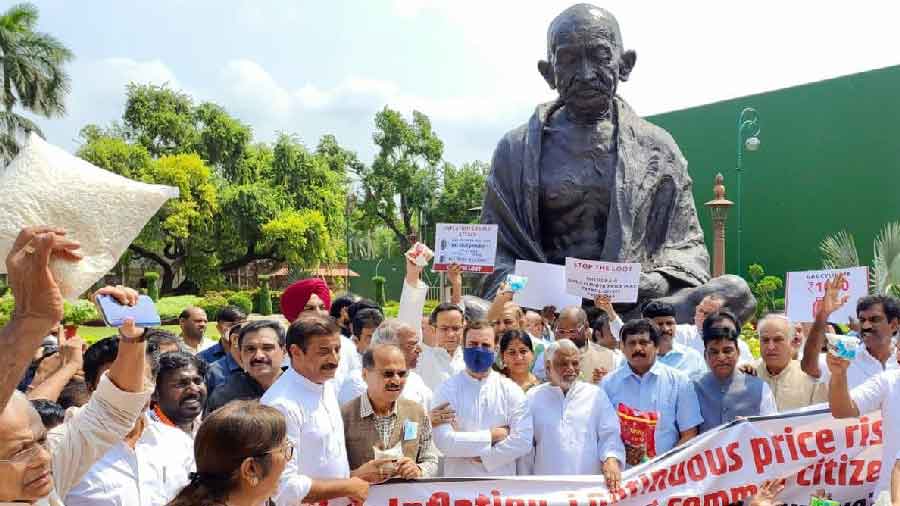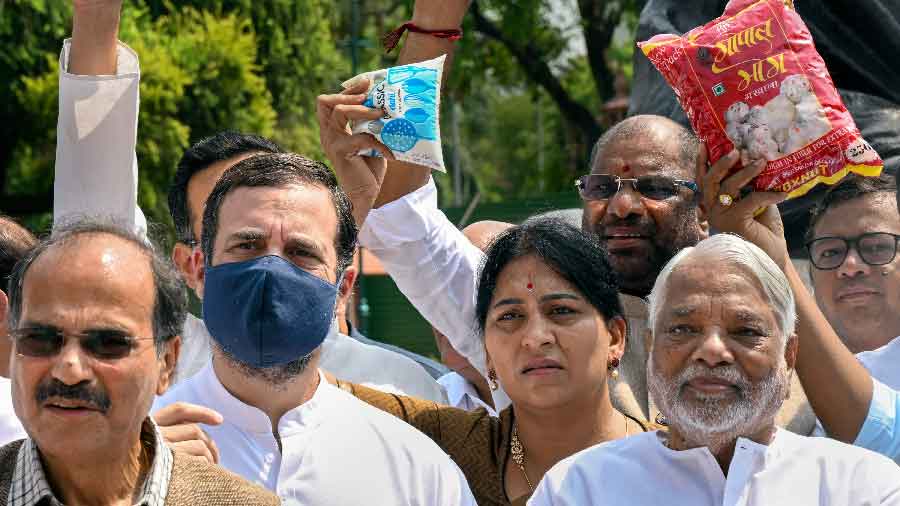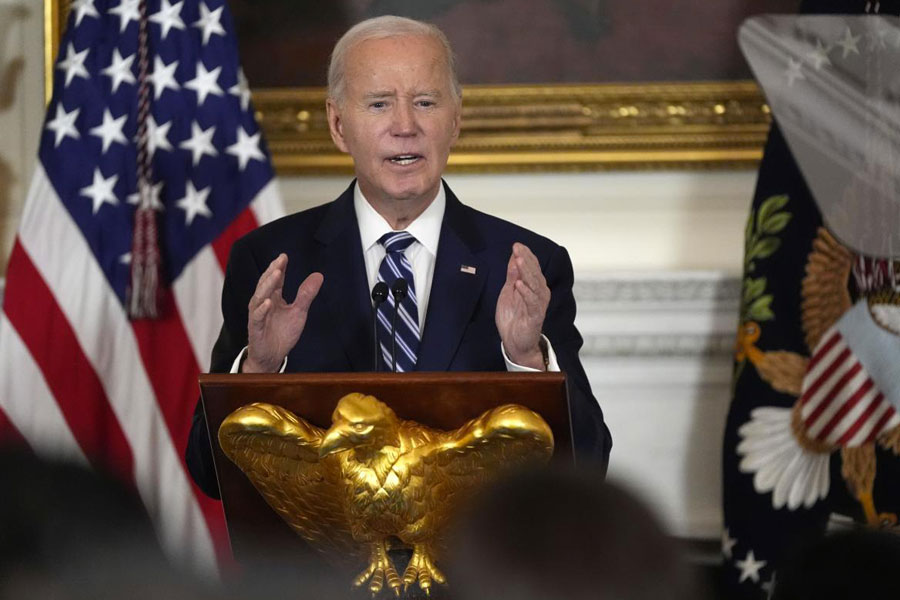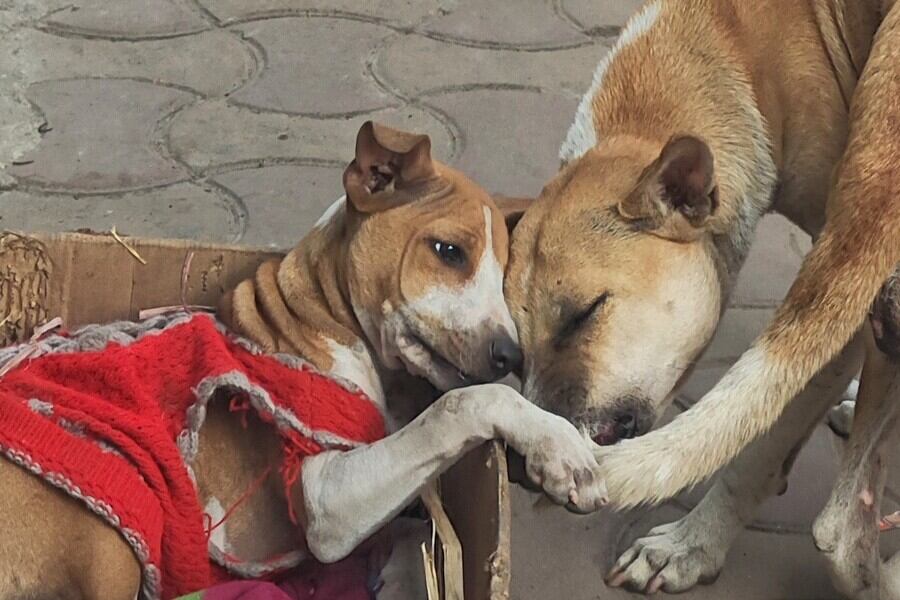The Congress on Wednesday protested in Parliament and outside against the imposition of GST on essential foodstuff consumed by the poor and middle classes, stitching it into its larger campaign against price rise.
Against the government’s claim of a consensus at the GST Council meeting that decided on the tax, Congress communications chief Jairam Ramesh referred to Bengal’s objections.
Party spokesperson Supriya Shrinate too said that it was the Centre that had introduced the idea, and stressed that the GST Council’s recommendations were not binding on the Centre.
Finance minister Nirmala Sitharaman has asserted that the states had not opposed the proposal. The Group of Ministers that had examined and cleared the proposal included representatives of seven states, including Opposition-ruled Kerala, Rajasthan and Bengal. It’s possible that some of the state representatives had not grasped the full implications, but the Congress central leadership has gone into the offensive.
Defying a ban on protests on Parliament premises, Congress members on Wednesday arrived with foodstuff such as rice, wheat, milk, curd, lassi and buttermilk to highlight how the government had taxed items used by the ordinary citizen.
The Congress countered the finance minister’s defence that unpackaged food items would not attract the GST by asking why the poor should not aspire to buying hygienically packed goods.
“‘Branded and labelled’ is very different from ‘pre-packaged and labelled’. The former affects only products of big companies that are priced higher and bought by the middle and upper middle classes.
The latter affects small businesses whose products are bought by the lower middle classes and the poor,” Ramesh tweeted.
Ramesh tweeted: “Why should the poorer consumers not aspire to buying pre-packaged and labelled goods? The Modi government is penalising aspiration and a desire to buy more hygienically packed goods.”
Responding to the government’s claim of consensus, Ramesh said: “The West Bengal minister who attended the meeting has disclosed it was a virtual meeting. The finance ministers did not meet face to face and did not consult each other.
“The West Bengal minister also contradicted the Union finance minister and said that she (and some others) opposed the report of the Fitment Committee that had recommended the increases. Changing their stance, the government and the finance minister are now using the word ‘consensus’ and not ‘unanimous’.”
Ramesh added: “Assume there are some input taxes in pre-packaged goods. Was there a demand from producers and sellers to impose a GST on pre-packaged and labelled goods? Not to our knowledge.
“Why are small businesses, shopkeepers and consumers — all stakeholders — complaining about the revised GST rates? Above all, it’s the timing. It is cruel to raise tax rates when CPI inflation is over 7 per cent, WPI inflation is over 15 per cent, unemployment is high, the rupee is depreciating, the current account deficit is widening and inflation is expected to rise worldwide.”
Rahul Gandhi tweeted: “Gabbar’s recipe for the public grappling with high prices: Make less food, eat less food. Let the jumlas satiate your hunger. The Prime Minister, who can listen to even the unspoken things from his friends, will have to listen to the people and withdraw this GST.”
The Congress has dubbed the GST the “Gabbar Singh Tax”, playing on the name of an iconic Hindi film villain.
The Congress disrupted both Houses of Parliament for the third consecutive day on Wednesday after the Opposition’s demands for debates on the price rise and the new GST regime were again rejected.
Congress members armed with packets of foodstuff shouted slogans in the wells of both Houses despite repeated warnings from the Lok Sabha Speaker and the Rajya Sabha Chairperson.











